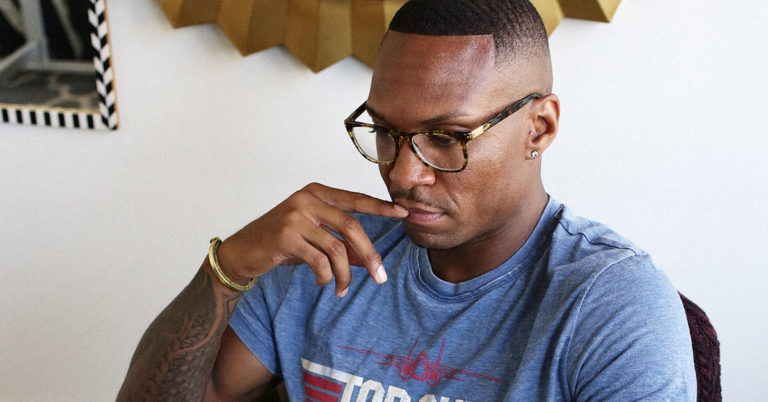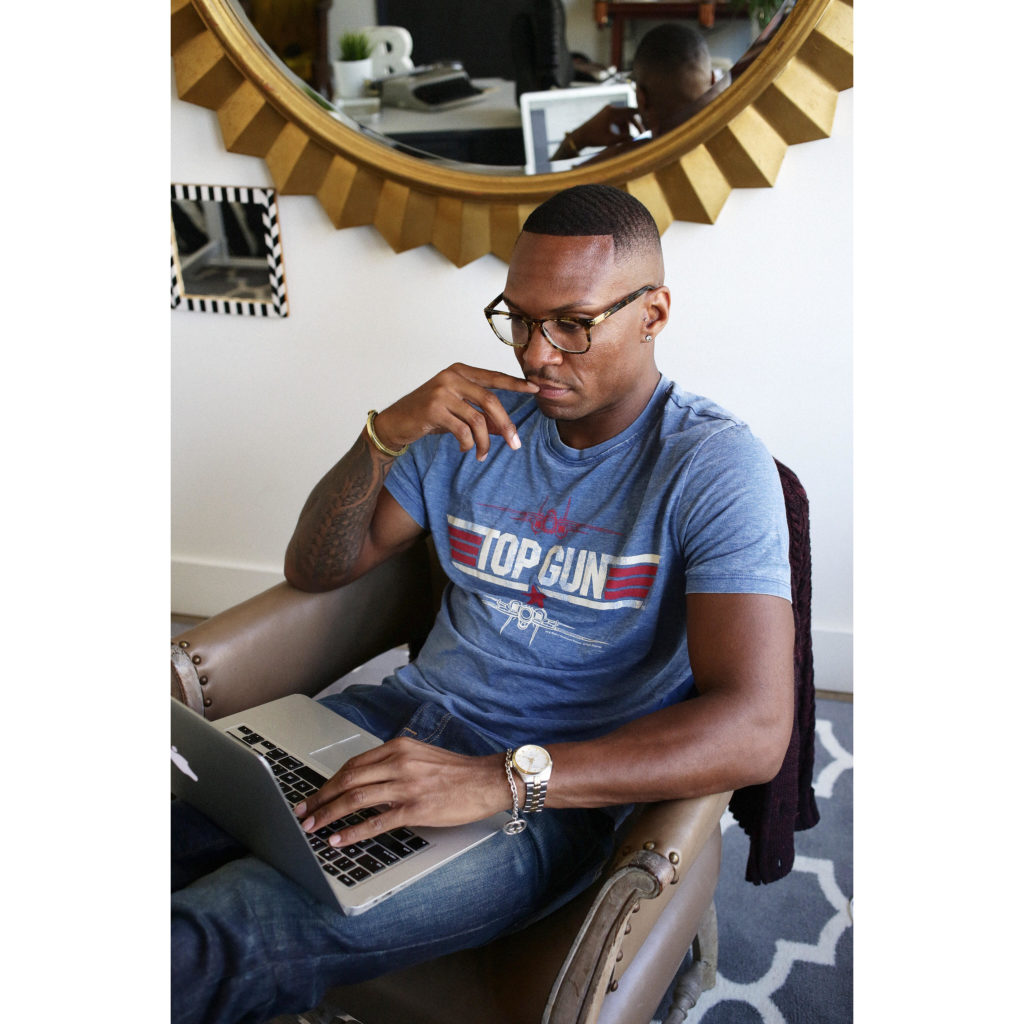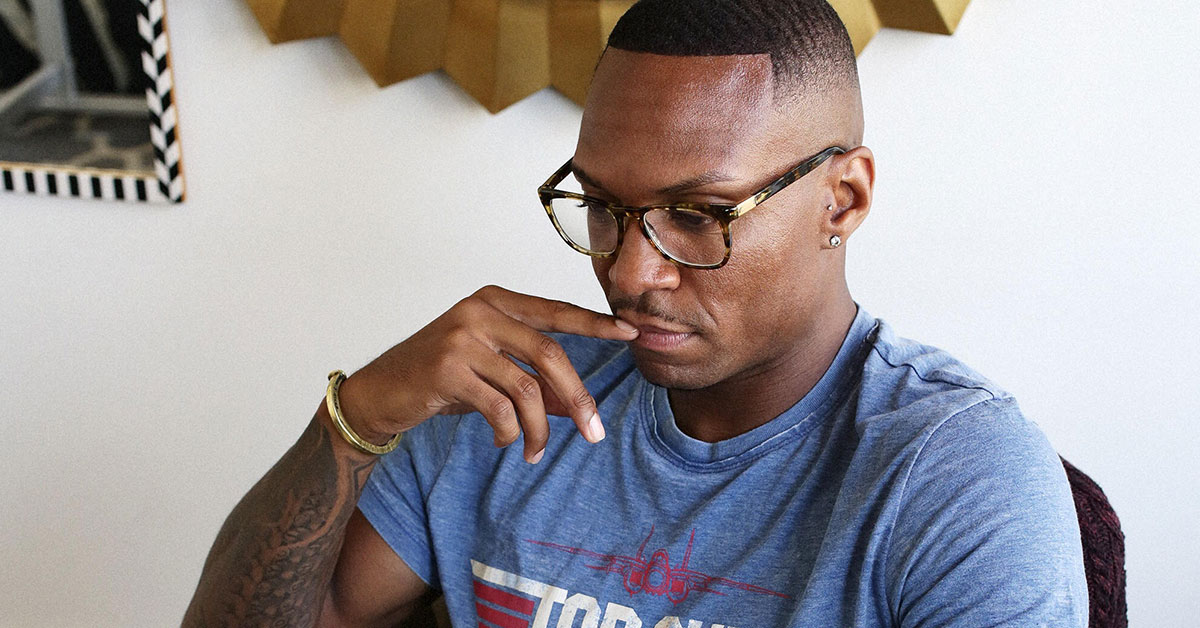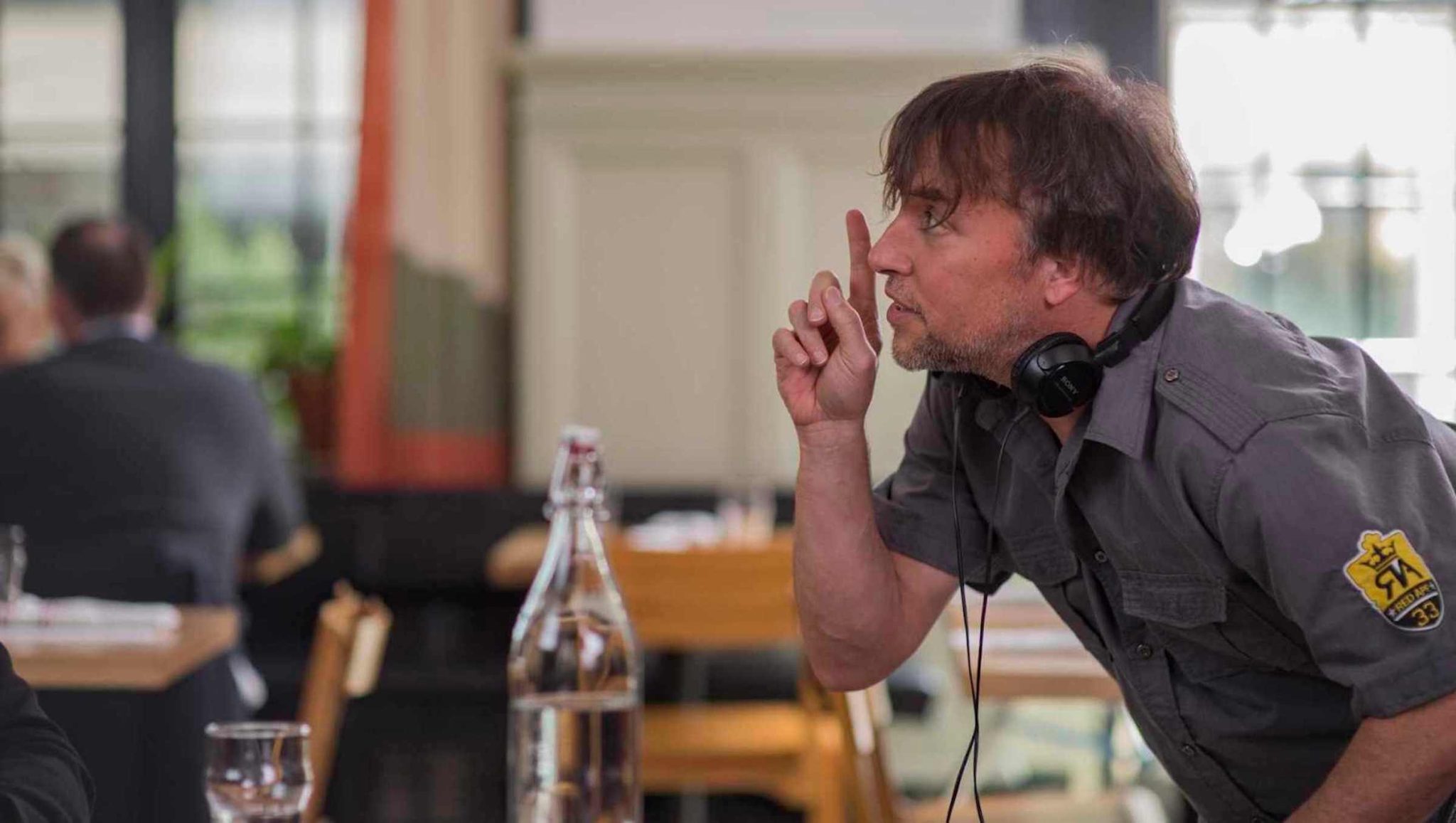Interview with Screenwriter and Producer Ben Cory Jones

Update (June 3, 2020): Since this interview Ben Cory Jones has been a showrunner on BET's Boomerang and he mentored writers at the 2019 ScreenCraft Writers Summit, and in May 2020 he launched a virtual television pilot writing workshop, @BenTheWritersRoom, for underrepresented writers of color and LGBTQ+ storytellers. Here's his speech from the ScreenCraft Writers Summit in 2019, courtesy of our partners at The Script Lab:
Meet Ben Cory Jones. He's a writer, producer, and even takes a stab at acting now and then. His mini-bio on IMDB says, "Ben Cory Jones is known for his work on Underground (2016), Step Sisters (2018) and Hand of God (2014)," but he is so much more than that. We had the chance to ask him a few questions about his career and journey, and it's just as exciting as his work. He's bursting with talent in a very big way that will affect humanity in the best possible sense. Intelligent, focused and utterly killing it, Ben is making his impact on the world and we can't wait to see what he comes up with next.
What projects are you currently working on?
I'm currently a writer and producer on Insecure for HBO. I've been a part of the series since the first season and we are currently writing and filming the third season. In addition, I have a drama TV pilot, Candy, in development with Universal Cable Productions. We also just premiered Step Sisters on Netflix, where I was one of the producers on the movie.
Is there anything you’ve wrapped up, but hasn’t been released yet?
I wrote a 4-episode limited series for Sony and Lifetime. Unfortunately, I can't reveal the details on the subject matter but it revolves around the current #MeToo movement.
What was the inspiration behind Candy?
I've always wanted to set a series in my hometown of Memphis, TN. Also, I've become increasingly interested in the amount of women entering politics in light of the current administration, especially at the mayoral level. I started this project with a question: What if Memphis (which currently ranks as one of the worst cities in the country to raise a family) had a young, black female mayor who was elected at the ripe age of 29? I purposely wanted to create a strong, black female lead character who was interesting, complex, layered yet potentially flawed. Essentially, adding to the TV canon of black female characters who are REAL.
How did Step Sisters come to be?
My good friend and fellow writer, Chuck Hayward (Dear White People/Netflix), and I were having drinks one night and he showed me a YouTube video of a group of white sorority girls stepping at a traditionally black Greek step show in the Midwest. And they were killing it, however, there were mixed reactions from the predominately black audience to white girls stepping, which is considered a historically black Greek tradition. From there, we knew we had a central conflict. Chuck went off and wrote the script, and myself along with Lena Waithe signed on as producers and we did everything from hiring our director, Charles Stone, to going into production, to eventually getting the movie sold to Netflix, where it is now in over 200 countries!
How do you feel about Underground being canceled?
It was definitely sad when the show got canceled. Working on Underground was both creatively and professionally fulfilling. Slavery has been and is a huge and essential part of our collective American history, yet there is still so much about slavery that the average American still has yet to understand, especially the role slavery has played and continues to play in the social and political dynamics of our country. However, I'm hopeful that this will not be the last you hear of Underground.
What’s it like to work on Insecure? Will you have any episodes in Season 3?
Insecure is a dream job, and getting to work closely with my good friends, fellow writers, including my friend Issa Rae, has been a life and career-changing experience. We all collaborate on each of the episodes as a writing staff so I have an influence on all the stories we tell throughout the season, which is extremely fun. Spoiler alert: you might see another cameo from me this season as an actor! (I played the Lyft driver in episode 6 last season.)
How do you feel about the immense opportunity to change the conversation about what it’s really like to be a black man in America?
I don't take that opportunity lightly and I'm completely grateful to be at the forefront of presenting images that broaden the conversation of what it's like to be a black man in America. People derive their self-image from what they see on TV and film, and as a storyteller and filmmaker, it's my responsibility to make sure those images are authentic — and to also to use my platform to imbue more black men with hope, self-confidence and an intrinsic belief in themselves.

Photo Credit: Luke Austin — @lukeaustinphoto
When did you realize you wanted to be a screenwriter? Was there an exact moment, or was it more gradual?
Prior to becoming a writer and producer, I worked on Wall Street as a communications executive and speechwriter. While living in New York, I went to NYU to take writing classes just as a hobby. However, after the first hour into my first class, I had my "oh, shit" moment. I realized sitting in that class and learning about classic episodes of TV that this is exactly where I want to be. I had found my true passion. From that moment on, everything in my life became about learning how to write and launching a career as a screenwriter. And eventually quitting my job on Wall Street and moving to LA.
Tell us about being vulnerable in your work. Do you think there’s a line?
Vulnerability is the holy grail. I don't think there really is a line, however, vulnerability should be paired with honesty always. As a writer, you can bear your soul on the page, but if it's not honest, it doesn't matter. Vulnerability is about speaking openly, whereas honesty is about speaking truth. You need both.
What has been the most satisfying project to work on so far?
Insecure has been the most satisfying project to work on so far. It has been the longest job I've had, and to be on the forefront of telling stories that broaden the conversation about young, black women has been hugely satisfying.
What’s it like to be a part of the 2018 Showrunner Training Program?
It's the opportunity of a lifetime. The goal of the program is to give producer-level writers those tangible and intangible skills that are necessary to successfully run a TV series. Each week, we hear from current showrunners and huge names in the business like, Carlton Cuse, Shawn Ryan, Kenya Barris, Yvette Lee Bowser, Raelle Tucker, to name a few. I love the program because everyone always keeps it real on their experiences as a showrunner, good or bad. As a showrunner, you go from just being a writer on staff to now managing a huge staff of writers, cast and crew. It's like running a mini-corporation, so this program is a great resource to ensure future showrunners are successful and are also aware of the importance of diversity.
What’s the best advice you can give to beginning screenwriters?
Read everything. Read good screenplays, read bad screenplays, read novels — fiction and non-fiction. To be a good writer, you have to be a good reader. Also speaking to the vulnerability point, writers must spend the time getting to know themselves. If you can't be vulnerable and honest with yourself, how can you be honest and vulnerable with your characters?
What do you wish you would have known 5 years ago that you know today?
Trust the process. Yes, this business is challenging and sometimes seems unfair to women and people of color. However, you have to keep your faith and trust the system (which is your faith) that your creative dreams will come true.
What’s next for you?
I've just signed on to write (adapt) and produce E. Lynne Harris' best-selling novel Invisible Life into a feature film. I first read this book when I was fourteen, and it changed my life. I remember having to sneak and read it because I was still questioning my sexuality at this point and I didn't want anyone in my family to find out. As a black gay man, this was the first time I saw myself in media, so I'm honored and excited to start working on this project!
For all the latest ScreenCraft news and updates, follow us on Twitter, Facebook, and Instagram.
Tags
Get Our Screenwriting Newsletter!
Get weekly writing inspiration delivered to your inbox - including industry news, popular articles, and more!



























